China’s Ju Wenjun, Women’s World Chess Champion, born 1991 in Shanghai, China with FIDE Rating 2560 was challenged by Lei Tingjie, the winner of the Candidates Tournament. And with recent win of Men's World Chess Championship Liren Ding surprised all with his win against Russian Ian Nepomianchi. Quo Vadis Chinese Chess? The new age of Chinese chess ruling might come by storm. (by Chinese chess we mean traditional world chess, not Xiangqi)
Women's World Chess Championship all Chinese
A thrilling 12-game match which started July 5, 2023 is now over and we know the 17th world champion. Ju Wenjun defended her prestigious title against Lei Tingjie, the winner of the Candidates Tournament. What made this championship even more special is that both players were from China. The match took place in two cities, Chongqing and Shanghai, giving each player the advantage of playing on their home turf. Lei Tingjie was born in Chongqing, while Ju Wenjun is from Shanghai. It's going to be an exciting showdown!
Ju Wenjun has won a wild final game of the 2023 FIDE Women's World Championship to claim her fourth title with a 6.5-5.5 victory over Lei Tingjie. The 17th women's world champion, who has held the title since 2018, also picks up the €300,000 ($334,000) winner's prize, while Lei takes €200,000.
In response to the Russian invasion of Ukraine, FIDE organizers took steps to prevent a potential clash between Russian and Ukrainian players until the Final match, if it happened at all. And their plan succeeded! Surprisingly, two talented Chinese women, Lei Tingjie and Tan Zhongyi, emerged as the top contenders in their respective brackets. They achieved remarkable victories over both Ukrainian and Russian opponents throughout the tournament.
Lei Tingjie defeated Tan Zhongyi (3.5 to 1.5) in the Final match for the right to challenge Ju Wenjun for the title.
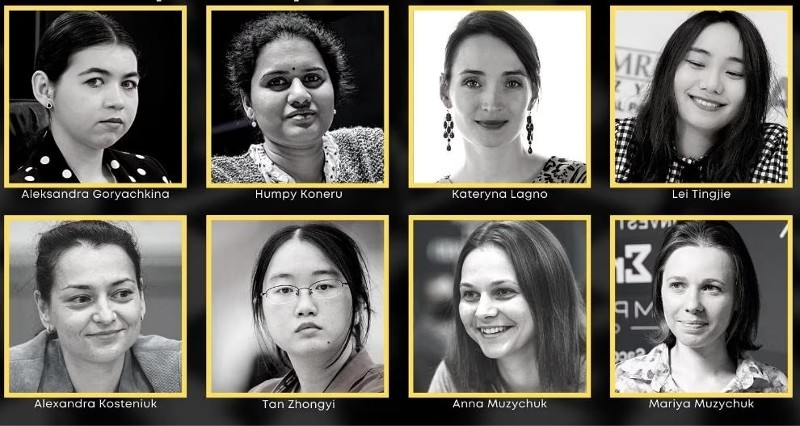
Interested in owning entire chess database of FIDE official chess tournaments and players including Chinese? Download 9.6 million human chess database carefully crafted since 2004.
Story of Ju Wenjun
Ju Wenjun, a prominent Chinese chess grandmaster, has left an indelible mark on the world of chess with her exceptional skills and achievements. Born on January 31, 1991, in the bustling city of Shanghai, China, Ju Wenjun discovered her passion for chess at a young age. She is a three-time Women's World Chess Champion having won the title in May 2018, November 2018 and 2020.
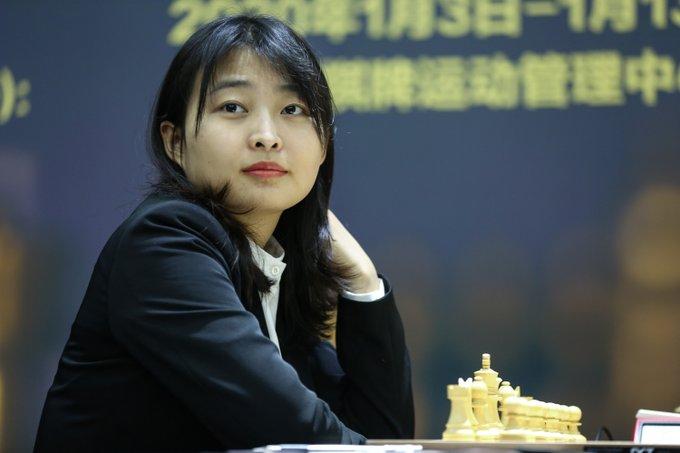
Photo: Lewis Liu/FIDE
Ju's journey towards becoming a chess champion began with her early dedication and hard work. She honed her skills through rigorous training and participated in numerous national and international competitions, steadily climbing the ranks. Her strategic thinking, sharp calculation, and unwavering determination set her apart as a formidable player in the chess world.
She won the Women's Chinese Chess Championship in 2010 and 2014. In July 2011 she won the Hangzhou Women Grandmaster Chess Tournament undefeated with a score of 6½/9 points, ahead of the then women's world champion Hou Yifan. (again Chinese)
In 2018, Ju Wenjun's efforts reached a pinnacle when she clinched the prestigious title of Women's World Chess Champion. This remarkable feat showcased her exceptional talent and showcased her ability to outwit and outmaneuver her opponents on the grandest stage.
She is an inspiration to aspiring chess players, particularly in China, where she has become a role model for the younger generation. Her achievements not only highlight her personal success but also contribute to the growth and recognition of Chinese chess on the international stage.
As she continues to dominate the chess world with her exceptional skills and determination, Ju Wenjun's legacy as a Chinese chess grandmaster and Women's World Chess Champion remains firmly established.
Challenger Lei Tingjie
Lei Tingjie, a talented chess player, hails from Chongqing, China. Born in this vibrant city, her passion for chess ignited at a young age, propelling her on a remarkable journey in the world of chess.
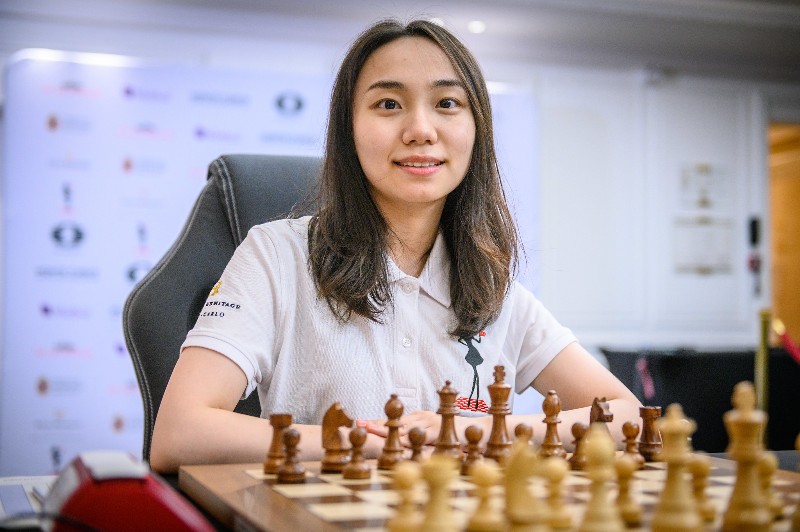
Lei holds the title of Grandmaster. She was the 2021 Women's Grand Swiss champion, the 2017 Chinese women's national champion and the 2022–23 Women's Candidates winner. Lei earned the Grandmaster title in 2017 at age 19, and was the sixth woman to obtain the title as a teenager.
Her recent achievements include winning the Candidates Tournament, a notable accomplishment that earned her the opportunity to challenge for the Women's World Chess Championship title. Her success in this tournament highlighted her exceptional abilities and solidified her status as one of China's top chess players.
In April 2023, she won the Women's Candidates Tournament 2022-23 after beating Tan Zhongyi 3½–1½, winning the match by game 5. She will challenge the Women's World Champion, Ju Wenjun, in July 2023, for the title of Women's World Champion.
Liren Ding - Men's World Champion 2023
We have covered Ding's story in our separate article, the quick story is straight forward. Liren Ding is a highly accomplished Chinese chess grandmaster who has established himself as one of the world's top players. Born on October 24, 1992, in Wenzhou, China, Ding's exceptional talent and dedication to the game have propelled him to great heights in the world of chess. He defeated Russian Ian Nepomianchi in Astana, Kazakhstan in April 2023 and earned Title FIDE World Chess Champion.
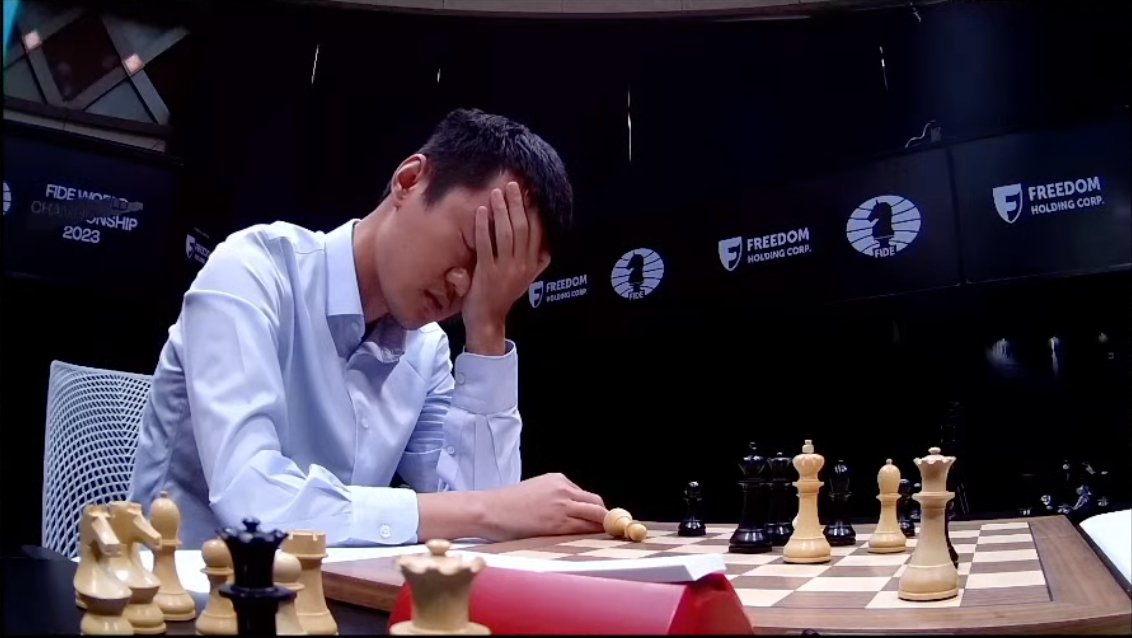
Photo: FIDE. The moment Liren Dign won World Champion
Ding's impressive career is characterized by numerous accolades and achievements. He earned the title of Grandmaster in 2009 at the age of 16, making him one of the youngest players to achieve this prestigious rank in China. Since then, he has consistently displayed exceptional skills and remarkable consistency in his performances.
Ding Liren: "I'm quite relieved. The moment Ian resined the game was a very emotional moment. I couldn't control my feelings. I know myself, I will cry and burst into tears. It was a tough tournament for me. I would like to thank my friends."
Do you know Xiangqi?
Chinese Chess, also known as Xiangqi, is a captivating board game with a rich history that spans over a millennium. Its origins can be traced back to ancient China, where it was played by the nobility and military commanders as a means of strategy and entertainment.
The precise origins of Chinese Chess are somewhat uncertain, but it is believed to have evolved from an earlier Indian game called Chaturanga, which was introduced to China during the 6th century. Over time, Chinese Chess developed its unique characteristics, rules, and pieces, reflecting the cultural and strategic nuances of the Chinese civilization.
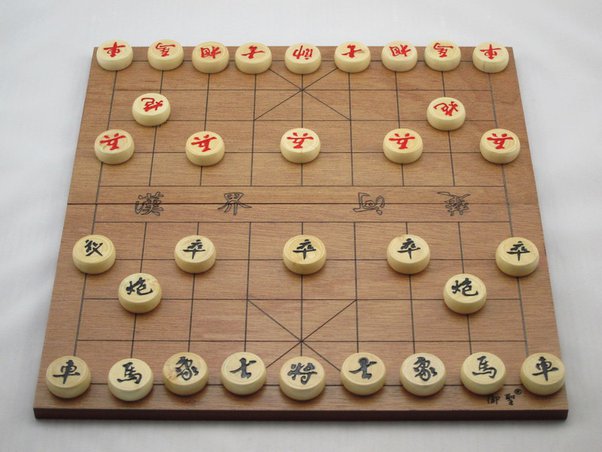
Chinese Chess gained popularity throughout the centuries, becoming a staple of intellectual pursuits and social gatherings. It was played by people from all walks of life, from the ruling elite to the common populace. The game's appeal lies in its blend of intricate strategy, skillful positioning, and tactical maneuvers.
The objective of Chinese Chess is for each player to capture their opponent's general (or "king") while protecting their own. The game is played on a 9x10 grid, with each player commanding an army of 16 pieces. The pieces, representing various types of soldiers, officers, and even elephants, have distinct movement patterns and strategic roles on the board.
Chinese Chess has seen several advancements and refinements over the centuries. The earliest known written references to the game can be found in ancient texts from the Tang Dynasty (618-907). Throughout history, numerous treatises and manuals were published, detailing strategies and tactics for players to study and improve their skills.
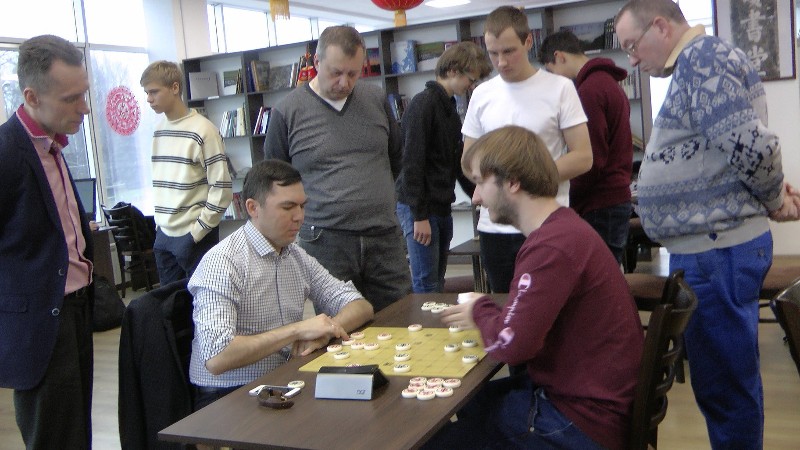
In the modern era, Chinese Chess has continued to flourish both in China and around the world. It is widely enjoyed as a recreational game, with professional competitions and tournaments held regularly. Chinese Chess has also gained recognition as a mind sport, promoting critical thinking, problem-solving, and strategic planning.
As China's influence on the global stage has grown, so has the popularity of Chinese Chess. It serves as a symbol of Chinese culture and tradition, embodying the nation's rich history and strategic prowess. The game's enduring appeal and enduring legacy make it a cherished part of China's cultural heritage and an engaging pastime enjoyed by enthusiasts worldwide.
The chess databases are important for a number of reasons.
First and foremost, chess databases allow players to study and analyze past games. By studying the strategies and tactics used by top players, aspiring chess players can improve their own skills and understanding of the game. In addition, chess databases can be used to identify patterns and trends in a player's style, which can be helpful in preparing for a match against that player.
Second, chess databases can be used as a training tool. Many chess databases come with built-in analysis and training features that allow players to test their skills and practice specific openings or endgames. This can be particularly useful for players who are looking to improve their tactics or endgame play.
Third, chess databases can be used to track progress and measure improvement. By storing and analyzing a player's games over time, a chess database can help a player identify areas of weakness and track their progress as they work to improve.
Finally, chess databases can be used for research and analysis. Chess enthusiasts and researchers can use chess databases to study the history of the game, analyze the trends and patterns that have emerged over time, and identify the factors that contribute to a player's success.
The chess databases are an invaluable resource for players, trainers, and researchers alike. They provide a wealth of information and tools that can be used to improve one's understanding and skills in the game of chess.
OpeningMaster is now available on all three major podcast platforms
We are glad we can provide this service totally for free on all major podcast platform Youtube, Spotify and Apple Podcasts so you can now enjoy the chess meditations whether you are fan of either of the three.

Visit and subscribe to our YouTube channel  to learn chess openings and much more. Listen to our Spotify Podcasts
to learn chess openings and much more. Listen to our Spotify Podcasts ![]() on weekly basis.
on weekly basis.





